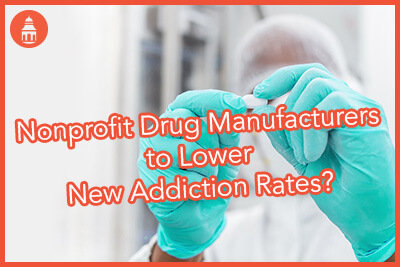
Across the country, marijuana legalization has been a hot topic of debate for years now. States have worked hard to assess how residents feel about making the substance legal, and bills that support those desires have hit ballots again and again.
Caught in the wake of this rough political storm are business owners both large and small. Given that most companies have a drug policy in place to ensure that employees are not drinking or getting high on the job, there has been some question as to how legalization laws can and should impact the workplace.
In short, if a state legalizes marijuana for medicinal use, are employees then required to allow employees to use the drug in the workplace? Are they required to allow employees to be under the influence of marijuana while on the job?
And if marijuana is legal for recreational use in the state, are employers then required to throw out the requirement that employees pass drug tests that were previously mandatory for maintaining employment?
Good for Business
Thus far, most employers have taken a hard line against drug use among employees in states where it is legal to use marijuana for any purpose. According to Bloomberg Business, many businesses in states where marijuana is legal have stated emphatically that they will not hire people who use marijuana when they are off the job, much less when they are at work.
A survey led by the Society of Human Resource Management (SHRM) found that about 50 percent of the 623 human resources managers polled either already have policies in place that would restrict the use of marijuana among employees or have plans to implement such policies. An estimated 38 percent of survey participants stated that they would not hire anyone who uses marijuana, even if such use is in an effort to manage a medical condition.
Evren Esen is the Director of Survey Programs at SHRM. Says Esen: “There is what I consider to be a significant number of employers that are saying they wouldn’t hire an employee that uses marijuana.”
Is this policy legal? According to the Colorado Supreme Court, a state where marijuana is legal for both medical and recreational use, employers are within their rights to terminate the employment of personnel who use marijuana when they are not at work. Ultimately, even though the drug is legal in some states, it is still illegal according to federal law; thus, the waters are muddy when it comes to discerning whose rights are being violated if people want to smoke marijuana before work, with the goal of managing health issues, but their ability to do their job may be impaired because they are under the influence.
Personal Health vs. Business Health
It’s not just marijuana that has been up for debate when it comes to how the use of legal drugs should be addressed in the workplace. CNBC reports that about 80 percent of employers in Indiana are negatively impacted by prescription drug use and abuse. The survey conducted by Greg Zoeller, the Indiana Attorney General, in conjunction with the National Safety Council (NSC), found that about 64 percent of employers see prescription painkillers (e.g., oxycodone- and hydrocodone-based medications) as a much larger problem than illegal drugs like heroin or cocaine.
Deborah Hersman is the president and CEO of the NSC. She says: “We would expect very similar results in many states. This is not a local problem; this is a national problem, and it’s very important for employers to understand this is an issue they need to pay attention to and not put their head in the sand. If an employee is taking a prescription painkiller, their cost on workers’ comp goes up four times, and 25 percent of all prescription costs in workers’ comp are opioid painkillers.”
Additionally, the survey found that:
- An estimated 50 percent of employers have a written policy in place regarding the use of prescription medications by employees.
- About 75 percent of employers state that the misuse or abuse of prescription drugs by an employee is a viable reason for termination.
- About 87 percent of employers routinely require employees to take drug tests, but only about 52 percent test specifically for synthetic opiates (e.g., prescription painkillers).
- Less than 30 percent of employers report that they offer any kind of training or education for employees regarding the use of prescription drugs in the workplace or during off hours.
Said Zoeller: “Beyond the loss of productivity, prescription abuse can cause impairment, injury and may lead employees to bad choices, such as theft or embezzlement from the employer.”
Addressing the Risks of Workplace Drug Use and Abuse
No matter what the drug of choice, if employees are rendered less capable of managing their responsibilities on the job – especially if physical safety is threatened – it is absolutely necessary for employers to have a solid structure in place to identify drug use and abuse as well as immediate consequences to implement for the protection of all involved.
The NSC recommends that, in order to mitigate the risk of problems associated with drug use of any kind in the workplace, employers should:
- Create a standard written policy regarding the use of any and all substances of abuse, both on the clock and during off hours.
- Ensure that all employees are aware of these policies at the time of employment and have them sign a document to that effect.
- Require mandatory random drug testing for a range of substances.
- Provide trainings for employees that remind them of the risks involved in choosing to use any substances – legal or not.
- Train managers and human resources personnel to spot signs of drug abuse and addiction.
- Offer support for drug treatment when necessary, if possible.



